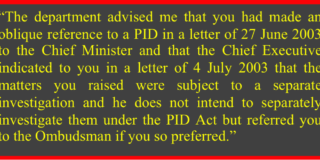
Introduction
The Australian Federal Police (AFP), as Australia’s principal federal law enforcement agency, holds a critical mandate to enforce Commonwealth laws, safeguard national interests, and deliver policing services within the Australian Capital Territory (ACT) and beyond. Established in 1979 under the Australian Federal Police Act 1979 (Cth), the AFP operates across a multifaceted security landscape, addressing counter-terrorism, organised crime, cyber threats, and community policing. With a workforce exceeding 6,000 personnel and an annual budget surpassing $1.5 billion, the AFP wields substantial power in maintaining public safety and upholding the rule of law.
With such authority comes a paramount obligation to uphold principles of transparency and accountability, which are cornerstones of democratic policing. Transparency ensures that police power is exercised fairly, deters misconduct, and fosters public confidence. In its absence, suspicion festers, confidence deteriorates, and systemic failures may persist unchecked.
In recent years, the AFP has faced growing criticism regarding its opacity, especially in its handling of complaints against officers. These concerns are not merely theoretical; they are grounded in judicial rulings, media investigations, and findings from oversight bodies. A landmark illustration is the 2025 Federal Court case Bachelard v Australian Federal Police [2025] FCAFC 5, where the AFP’s repeated refusal to disclose documents relating to an investigation into leaks highlighted a broader institutional resistance to scrutiny. This case, involving allegations of a tip-off to former SAS soldier Ben Roberts-Smith amid war crimes investigations, underscores how the AFP prioritises internal confidentiality over the public interest.
Complementing this judicial critique is the Commonwealth Ombudsman’s 2023-24 Annual Report on the AFP’s complaint management, tabled in Parliament in July 2025. The report exposes systemic flaws, including inappropriate use of discretionary powers, poor communication with complainants, and failure to address serious misconduct effectively. It reveals that the AFP is “failing to address misconduct complaints” adequately, with recurring issues suggesting a culture of avoidance rather than accountability.
This paper critically examines the AFP’s lack of transparency in investigating complaints, drawing extensively on the Ombudsman’s report and integrating broader criticisms from legal, media, and advocacy sources. It argues that the AFP’s current practices contravene principles of procedural fairness and undermine democratic legitimacy by shielding potential abuses from public scrutiny. The agency’s prioritisation of operational secrecy over openness risks perpetuating a “tight-knit” policing culture that discourages whistleblowing and accountability. Given declining public trust in Australian policing, this critique is timely and calls for urgent reform to restore the social contract between law enforcement and the community it serves.
Overview of the AFP’s Complaint Handling System
The AFP’s complaint handling framework is principally governed by Part V of the Australian Federal Police Act 1979 (Cth), which categorises complaints into four levels according to severity:
• Category 1: Minor customer service issues (e.g., discourtesy).
• Category 2: Minor misconduct (e.g., failure to comply with procedures).
• Category 3: Serious misconduct (e.g., assault, excessive use of force).
• Category 4: Corruption (e.g., abuse of office, fraud).
Complaints may be lodged by the public, AFP officers or oversight bodies such as the Commonwealth Ombudsman. The Professional Standards unit (PRS) is responsible for intake, assessment and categorisation. For minor complaints (Categories 1 and 2), resolution often involves Workplace Issues and Complaints Resolution (WICR) managers, who emphasise informal mediation. Serious complaints (Categories 3 and 4) generally require formal investigations, potentially involving the Australian Commission for Law Enforcement Integrity (ACLEI) for corruption matters, replaced by the National Anti-Corruption Commission on 1 July 2023.
In theory, this tiered system promotes efficiency and fairness, incorporating safeguards such as mandatory record-keeping under section 40WA and discretionary powers under section 40TF to dismiss frivolous or vexatious complaints. However, critics argue that the system’s design inherently favours internal control, lacking independent oversight at critical stages. The Commissioner’s delegation of discretionary powers to PRS allows investigations to be halted without external review, creating opportunities for abuse.
Transparency is purportedly ensured through annual reporting and Ombudsman reviews, yet these mechanisms are undermined by poor data recording and selective disclosure. A fundamental criticism is the AFP’s over-reliance on discretion to avoid investigations. Between 2019-20 and 2023-24, the AFP received 2,596 misconduct allegations but used section 40TF powers to stop 707 cases – over 27% – from proceeding, including 54 corruption and 107 serious misconduct claims. This pattern reveals frequent dismissal of complaints as “trivial” or “not in good faith” without thorough assessment, often relying on subjective judgments about witness reliability.
The Commonwealth Ombudsman has repeatedly flagged this practice as “unreasonable and unfair,” noting inadequate documentation of decision-making processes. Such discretionary dismissal denies complainants justice and shields officers from scrutiny, fostering a perception that the AFP polices itself with leniency.
Communication deficits exacerbate transparency issues. Complainants often receive vague outcome letters lacking detail on evidence considered or reasons for decisions, using “subjective and judgemental language” that implicitly blames the complainant. Non-compliance with record-keeping obligations, such as failing to separate multiple conduct issues, impedes oversight and auditing. In ACT Policing, internal reviews of officer behaviour remain opaque, with no public disclosure of outcomes despite judicial referrals for misconduct. Legal practitioners like Tom Taylor have condemned this secrecy, describing the AFP as a “secret-squirrel organisation” and warning that without public explanations, community confidence erodes.
The Professional Standards unit itself faces particular criticism for perceived bias. Described as “the opposite of transparent,” its internal nature invites scepticism, with surveys revealing that only 15% of AFP officers report witnessed corruption, largely due to fears of reprisal. This self-policing model contrasts with international best practices, such as the United Kingdom’s Independent Office for Police Conduct (IOPC), which provides independent oversight to ensure impartiality. In Australia, the absence of such independent bodies allows the AFP to control narratives, potentially masking systemic problems like excessive force or data misuse.
Overall, while the complaint handling system appears robust on paper, its implementation reveals a culture prioritising efficiency over thoroughness, with transparency sacrificed to protect institutional reputation. This context sets the stage for the Ombudsman’s damning 2023-24 report.
Analysis of the 2023-24 Commonwealth Ombudsman Report on the AFP
The Commonwealth Ombudsman’s 2023-24 Annual Report, released on 10 July 2025, delivers a scathing indictment of the AFP’s complaint handling processes. Based on two targeted reviews – one in August 2023 focusing on minor misconduct (Categories 1 and 2) and another in May 2024 on serious misconduct (Categories 3 and 4) – the report covers the period from July 2023 to June 2024. It identifies “recurring issues” that have persisted for years, including inappropriate discretionary use, inadequate investigations, and systemic communication failures.
Ombudsman Iain Anderson emphasised that the AFP is “not taking appropriate action” on many complaints, limiting its capacity to address high-risk issues such as excessive force and corruption. This failure “leaves the AFP open to criticism that it is disregarding matters that should be investigated,” the report asserts.
Findings from the Minor Misconduct Review
The minor misconduct review uncovered profound procedural lapses. Of 156 finalised complaints, 101 (65%) were not recorded against timeliness benchmarks, with average resolution times of 52 days – far exceeding the 21-day target for Category 1 and 42-day target for Category 2 complaints. Inaccuracies in categorisation were rampant; five use-of-force incidents causing injury were wrongly classified as Category 2, thereby avoiding stricter scrutiny.
The overuse of section 40TF discretionary powers surged to 85% of cases (up from 32% previously), often exercised without adequate consideration of evidence or alternative resolutions. The Ombudsman deemed this approach “unreasonable, unfair and failed to meet the requirements of the Act” in most reviewed instances.
Communication shortcomings were described as “systemic.” There was no internal guidance for WICR managers on acknowledging complaints or providing updates to complainants. Outcome letters lacked impartiality and used “subjective and judgemental language” that effectively blamed complainants, such as negatively characterising their behaviour without evidence.
Record-keeping breaches were frequent, violating section 40WA requirements. Multiple issues were bundled together, obscuring individual assessments and hindering effective oversight. These failures not only deny procedural fairness but also prevent the Ombudsman from properly evaluating the AFP’s performance.
Findings from the Serious Misconduct Review
The serious misconduct review was even more alarming, exposing failures in addressing corruption and use-of-force complaints. For example, in one Category 3 case involving personal use of AFP vehicles, admissions of misconduct were obtained but not shared with ACLEI, and the matter was downgraded to a “practices issue” without further investigation.
Use-of-force complaints were inadequately investigated; investigators ignored footage submitted by complainants and exercised discretion without reviewing use-of-force reports. Of 620 conduct issues assessed, only three resulted in identification of practices issues, suggesting a reluctance to acknowledge systemic problems, such as improper storage of replica firearms.
Timeliness assessment was impossible for 47.9% of 334 closed records because flawed initial reviews recorded “0 days open,” rendering performance evaluation meaningless.
The statistics portray inefficiency and avoidance. The report notes that discretion was used without “fully considering all circumstances,” echoing criticisms that the AFP prioritises closure over justice. This is particularly concerning for high-risk areas, such as excessive force allegations often involving vulnerable groups, which were dismissed prematurely, potentially endangering public safety.
Recommendations and AFP Response
The Ombudsman issued 19 recommendations, including:
• Universal application of timeliness benchmarks (Recommendation 1.1).
• Cessation of inappropriate discretionary dismissals.
• Improved communication protocols with complainants.
• Enhanced record-keeping practices.
The AFP accepted 12 recommendations in full and 7 partially, committing to an external review of its complaint handling system. However, critics question the sincerity of these commitments, given recurring issues highlighted in prior reports. The Ombudsman’s media release underscored that these flaws reflect “poorly on responsible administration”, implying a cultural resistance to change within the AFP.
Transparency and Accountability Implications
Critically, the report exposes how lack of transparency perpetuates misconduct. By failing to share information with ACLEI (now the NACC) or adequately document decisions, the AFP creates opacity that shields officers and undermines accountability. Greens Senator David Shoebridge stated, “police cannot investigate other police“, encapsulating broader concerns about self-policing. The findings suggest the AFP’s system is designed to minimise external scrutiny, prioritising internal harmony over public interest. Without enforceable reforms – such as mandatory independent reviews – these issues will persist, further damaging public trust.
Case Study: Bachelard v Australian Federal Police and the War Crimes Leak Investigation
The Bachelard v Australian Federal Police case epitomises the AFP’s transparency deficits, with its resistance to disclosure drawing sharp criticism. Michael Bachelard, a journalist for The Age, sought access under Freedom of Information (FOI) laws to documents from a 2020 AFP investigation into a leak allegedly involving former Commissioner Mick Keelty, who purportedly tipped off Ben Roberts-Smith about war crimes probes in Afghanistan. The leak, which prompted Roberts-Smith to use burner phones, threatened the integrity of investigations into alleged unlawful killings.
Despite a February 2025 Full Federal Court ruling allowing partial release of documents with redactions – emphasising the public interest in government accountability – the AFP refused disclosure on five separate occasions. The court found that the Administrative Appeals Tribunal (AAT) had denied procedural fairness by withholding adverse material and that claimed exemptions were overstated.
The AFP argued that release would breach confidentiality, deter reporting of corruption, and harm the “tight-knit nature of policing.” Commander Ben Case warned of a “devastating impact” on investigations, citing a survey where only 15% of officers report misconduct, implying that disclosure would undermine internal trust.
Criticism of AFP’s Position
Critics labelled the AFP’s stance as spurious and self-serving. Editors Patrick Elligett and Bevan Shields described the AFP’s actions as “alarming,” questioning why taxpayers fund efforts to “keep secret this information which the Federal Court has already determined to be in the public interest.” Shields suggested the AFP relied on “spurious reasons to avoid accountability and transparency.” The AFP’s claim that redactions would leave a “skeleton” of documents ignores the court’s finding that much could be safely released.
This case directly relates to complaint handling opacity. The documents include witness statements and reports on internal misconduct, mirroring the Ombudsman’s concerns about unaddressed corruption. By fighting disclosure, the AFP perpetuates a culture where leaks and tip-offs evade scrutiny, undermining accountability for war crimes. No charges resulted from the investigation, fuelling suspicions of a cover-up. Commissioner Reece Kershaw’s silence on the matter exemplifies leadership’s aversion to transparency.
Broader Implications
The case raises broader issues of media freedom and public trust. The AFP’s 2019 raids on journalists for similar leaks set a precedent for intimidation, with Bachelard continuing that trend. Critics argue this violates democratic principles, as the court noted transparency benefits “representative democracy.” The ongoing Administrative Review Tribunal proceedings highlight the AFP’s persistence in opacity at taxpayer expense.
Broader Criticisms: Discretionary Powers, Internal Investigations, and Public Distrust
Beyond the Ombudsman report and Bachelard case, widespread criticisms of the AFP’s transparency focus on discretionary powers, internal investigations, and declining public trust.
Overuse of Discretionary Powers
Section 40TF discretionary powers have been a flashpoint. Between 2019 and 2024, the AFP halted 707 of 2,596 allegations – including serious cases of fraud and abuse of office – using these powers. Decisions often rest on vague criteria such as “not in good faith,” with poor documentation leaving no audit trail. The Ombudsman criticised this practice for inadequate evidence consideration, noting cases dismissed due to “witness reliability” without verification. This presumption against complainants, particularly those from vulnerable communities, allows misconduct to fester unchecked.
Internal Investigations and Bias
The Professional Standards unit’s internal investigations are widely lambasted for bias and secrecy. Described as “the opposite of transparent,” the unit’s self-contained processes inspire little confidence. Media reports frequently communicate charges, but obscure deeper investigative opacity. In ACT Policing, internal reviews of officer behaviour remain hidden, even after judicial criticisms of excessive force incidents involving tasering and pepper-spraying without justification. Lawyers Michael Kukulies-Smith and Tom Taylor have advocated lifting this “veil of secrecy,” arguing that magistrates’ referrals often yield no action, suggesting police dismiss external input.
Data Misuse and Privacy Concerns
Data misuse adds another dimension. Since 2020, hundreds of complaints involve unauthorised access to databases, yet resolutions remain opaque. Facial recognition trials, such as Clearview AI, proceeded with limited transparency, raising privacy concerns. Metadata access occurs approximately 20,000 times annually, with minimal accountability – a practice unique among democracies.
Declining Public Trust
These issues culminate in declining public trust. Surveys indicate reduced satisfaction linked to perceived unresponsiveness and bias. Advocacy groups like the Human Rights Law Centre warn that transparency is “under threat,” with whistleblower protections failing and FOI systems broken. The AFP’s history, including the 2019 journalist raids, reinforces perceptions of overreach without oversight.
Performative Oversight versus Genuine Accountability
Critically, this opacity enables performative oversight – reporting statistics without substantive change – while genuine accountability lags. This contrasts starkly with Peelian principles of policing by consent, where transparency is essential to legitimacy. Without reform, the AFP risks alienating the public it serves.
Implications and Recommendations
The AFP’s transparency deficits have profound implications. They erode public trust, deter legitimate complaints, and potentially enable misconduct, as evidenced by unaddressed corruption and excessive force. This undermines democratic governance, as unchecked power fosters abuse. Economically, litigation such as Bachelard wastes public resources; socially, marginalised groups disproportionately bear the consequences.
Recommendations
1. Mandate Independent Oversight: Establish an independent body responsible for all AFP complaint investigations, akin to the UK’s IOPC, to ensure impartiality and restore confidence.
2. Full Implementation of Ombudsman Recommendations: The AFP should fully implement all recommendations from the 2023-24 Ombudsman report, including universal timeliness benchmarks and transparent communication protocols.
3. Public Disclosure of Outcomes: Review outcomes, particularly for serious misconduct, should be publicly disclosed with appropriate redactions to maintain trust and accountability.
4. Legislative Reform: Amend the Australian Federal Police Act to limit discretionary powers and require external review of decisions to dismiss complaints.
5. Enhance Whistleblower Protections: Strengthen legal protections to encourage reporting of misconduct without fear of reprisal.
6. Data Transparency and Privacy Safeguards: Improve transparency around data use, including metadata and facial recognition, with strict oversight.
7. Cultural Change Initiatives: Promote an organisational culture valuing openness, accountability, and community engagement, supported by training and leadership commitment.
Conclusion
The Australian Federal Police’s lack of transparency in complaint investigations, as starkly detailed in the 2023-24 Commonwealth Ombudsman report and exemplified by the Bachelard v AFP case, reveals systemic failures that undermine the agency’s legitimacy. The AFP’s prioritisation of secrecy over openness not only contravenes procedural fairness but erodes public trust and democratic accountability. Without urgent and comprehensive reform – including independent oversight, legislative change, and cultural transformation – the AFP risks further alienating the community it is sworn to protect, perpetuating a cycle of opacity and impunity incompatible with democratic policing.


